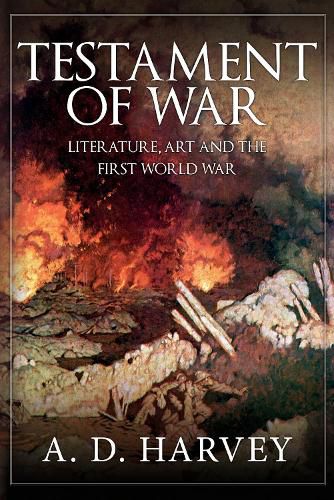Readings Newsletter
Become a Readings Member to make your shopping experience even easier.
Sign in or sign up for free!
You’re not far away from qualifying for FREE standard shipping within Australia
You’ve qualified for FREE standard shipping within Australia
The cart is loading…






Testament of War compares the English-language poetry and fiction of the First World War with that written in German, French, Italian and - to a lesser extent -Danish, Flemish, Hungarian, Portuguese and Russian. It also looks at how the war was experienced and depicted by visual artists. The author discusses what sort of people, in what sort of physical, psychological and social conditions, wrote about the war, or painted it; how they handled the challenge of describing their experiences with honesty; what literary and artistic techniques they employed; how other forms of creative talent were fostered by the war; and how far memoirs of the war prepared the way for the next one. He concludes with some reflections on the problem of studying literature from a historically informed point of view. Testament of War is ‘one individual’s attempt to see patterns and cross-connections in the responses of writers and artists to events that he himself had the good fortune not to have to live through.
$9.00 standard shipping within Australia
FREE standard shipping within Australia for orders over $100.00
Express & International shipping calculated at checkout
Testament of War compares the English-language poetry and fiction of the First World War with that written in German, French, Italian and - to a lesser extent -Danish, Flemish, Hungarian, Portuguese and Russian. It also looks at how the war was experienced and depicted by visual artists. The author discusses what sort of people, in what sort of physical, psychological and social conditions, wrote about the war, or painted it; how they handled the challenge of describing their experiences with honesty; what literary and artistic techniques they employed; how other forms of creative talent were fostered by the war; and how far memoirs of the war prepared the way for the next one. He concludes with some reflections on the problem of studying literature from a historically informed point of view. Testament of War is ‘one individual’s attempt to see patterns and cross-connections in the responses of writers and artists to events that he himself had the good fortune not to have to live through.